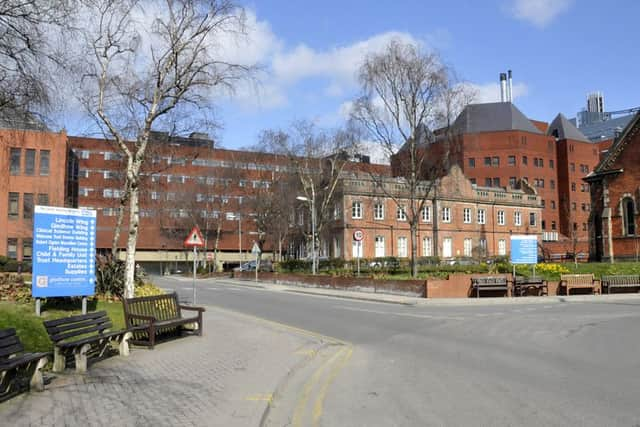Exclusive: Leeds hospital trust’s crackdown on £20,000-a-day ‘bed blocking’ issue fails spectacularly


The six-week crackdown on the ‘delayed transfer of care’ of patients, known as bed blocking, at Leeds Teaching Hospitals NHS Trust (LTH) has resulted in an increase, raising serious concerns over its ability to cope with winter pressures.
Hospital chiefs claim that the actions needed “are more complex than first thought”.
Advertisement
Hide AdAdvertisement
Hide AdThe latest figures show that in October 3,049 delayed days, when a patient takes up a hospital bed despite being well enough to leave, were incurred by the trust – equating to around 100 per day at a cost of at least £20,000 every day.


Leeds has the second worst record in England for the problem, which is down to issues like patients awaiting care home places, further NHS care or assessments.
LTH’s emergency care seems already to be feeling the pinch of winter pressure, with the trust failing to meet the standard of seeing 95 per cent of A&E patients within four hours in October for the first time in months.
Morley and Outwood MP Andrea Jenkyns, a member of the Government’s Health Select Committee, dubbed the results “unacceptable” and said such issues could be better resolved through devolving health budgets to local areas.


Advertisement
Hide AdAdvertisement
Hide AdShe said: “Not only does it put huge pressure on the trust and the hospitals, it puts patients at risk by increasing stress and limiting the resources available to those being admitted. This demands action from both the trust and more widely in terms of creating local services.”
Greg Mulholland, Leeds North West MP, added that the rise despite LTH efforts is “a concern, particularly with the winter season upon us”.
Trust bosses are now hoping to simplify hospital discharge, speed up the process with a “multi-disciplinary” approach and secure more beds.
The failure to tackle the issue in Leeds, which is costing LTH around £600,000 a month, has also led the trust to develop a ‘plan b’ to work with care homes to open up more community beds to free up hospital wards.
Advertisement
Hide AdAdvertisement
Hide AdLast month it emerged that a System Resilience Group made up of Leeds NHS chiefs, aimed at planning ahead to deal with extra pressure, had spent £9.1million in preparation for winter – £4m more than planned.
Julian Hartley, LTH chief executive, explained that the trust was “ambitious” in trying to tackle bed blocking, “a problem for the whole health community”. He said: “We are working really hard with the support of the Leeds CCGs, other NHS partners, social care, the Trust Development Authority and the Strategic Resilience Group collectively to tackle this issue. We continue with this work and anticipate it will deliver results.”
Costly problem getting worse
Waiting for care home places, patient choice, further NHS care or assessments are four of the main reasons behind delayed discharge.
Last year over 1.6million hospital ‘bed days’, in which a hospital bed was occupied by a patient well enough to be transferred elsewhere, were lost nationally.
Advertisement
Hide AdAdvertisement
Hide AdThe toll was 15 per cent up on the previous year and is continuing to rise. Many put bed blocking down to cuts to the NHS, council adult social care budgets and an ageing population. From April to October 2015, LTH had 6,917 more lost bed days than in the same period in 2014.